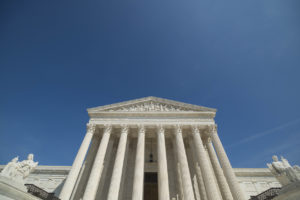Functus Officio is a Latin term meaning that once the purpose of the task at hand is completed, there is no further force or authority to undertake any further measures. When applied to arbitrations, the term means that once a final arbitration award has issued, there is no further authority for the arbitration panel to modify the award for any reason or to clarify the same. The rationale behind the rule is a belief that it is necessary to prevent a reexamination of issues by a nonjudicial officer where there might have been further outside communication or undue influence post-hearing. However, in a recent decision, General Re Life Corporation v. Lincoln National Life Insurance Company, 2018 U.S. App. Lexis 33340 (2d Cir. 2018), the Second Circuit joined the Third, Fifth, Sixth, Seventh, and Ninth Circuits in holding that an exception to this doctrine exists.
The governing arbitration panel had rendered a final arbitration award in 2015 resolving a dispute between the parties concerning the ability of General Re to increase premiums under a YRT Reinsurance Agreement with Lincoln. The panel found that General Re was entitled to increase the premiums under the governing contract and went on to address the recapture rights held by Lincoln. The panel determined that the award would be effective as of April 1, 2014; however, the panel did not address the parties’ rights with respect to transactions and recapture rights arising prior to that date. Thereafter, a dispute between the parties arose concerning the pre-April 2014 time period. Lincoln then sought a clarification from the panel, and General Re opposed, citing the doctrine of Functus Officio as precluding the panel from issuing a clarification; the panel rejected this argument and issued a clarification. General Re then moved to confirm the award without the clarification, and Lincoln cross-moved to confirm the award with the clarification issued by the panel. The district court confirmed the award as clarified, and an appeal was taken to the Second Circuit by General Re.
In affirming the decision, the Second Circuit recognized an exception exists “where an arbitral award ‘fails to address a contingency that later arises or when the award is susceptible to more than one interpretation’” (citation omitted). In the instant case, the court noted that both parties had advanced a different interpretation of the language in question, and the panel in its clarification had concluded something completely different; as a result, the court determined there was ambiguity in the award. The court specifically noted that adopting this exception furthers the general rule that when a court is asked to confirm an ambiguous award, the court should instead remand to the arbitrators for clarification. Based upon this, the Second Circuit noted that if the court can remand an ambiguous award back to a panel, it certainly means a panel can clarify an ambiguous award on direct request. However, the court did note that a panel can issue a clarification only where three specific conditions exist: “(1) the final award is ambiguous; (2) the clarification merely clarifies the award rather than substantively modifying it; (3) the clarification comports with the parties’ intent set forth in the agreement that gave rise to the arbitration.” Thus, at present, counsel should be mindful of the existing split in the circuits when considering the impact and application of this doctrine.











